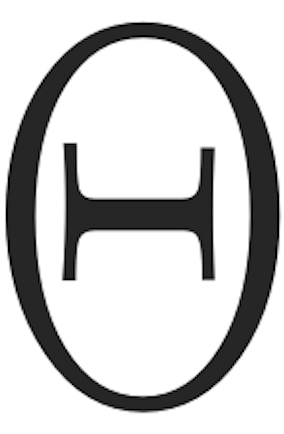
You may notice I tend to use the formal Greek θέλημα for Crowley’s 9=2 Utterance. Part of the reason for this is to jar a bit against the conventional ideas, some from Crowley and some from his interpreters, about “Thelema.” In particular, I think it is worth taking a look at what the natural language word “θέλημα” provides as insight into what Crowley was trying, and often failing, to articulate.
θέλημα does not, in fact, translate as “Will” in the sense that it is usually received. Instead, it means two things simultaneously. The first is “a desire” or “a wish” with an implication of an optimistic and even erotic outcome. In this sense, it is a way of seeing how your desire would be reflected in a perfect world shaped by that desire. The second meaning is “a task” or duty that one must fulfill in order to be complete.
It shows up in Artistotle once, but it is best attested to in New Testament Greek, where it is the origin of the phrase in the “Our Father” that is translated as “Thy will be done on earth as it is in heaven.” For a look at the different ways it gets used in Biblical Greek, here is a look at the Strong’s Concordance.
https://biblehub.com/greek/2307.htm
One thing to keep in mind is that θέλημα is a noun, not a verb. One does not θέλημα something, in the sense that one wills something in English. Rather it is a noun capable of action in some fashion. It is, in that sense, a non-gendered noun form of the verb θέλω (ethelo), “to desire.”
So, what does this have to do with Xeper?
θέλημα can be seen as a power source. It is the combustion engine of desire that provides raw energy to the pursuit of Xeper. If θέλημα is a Task, then Xeper is the glory and emergent transformation of its fulfillment. You see an echo of this in the Bond of the Ninth Angle:
“From the Ninth Angle is the flame of
the beginning and ending of dimensions,
which blazeth in brilliance and darkness
unto the glory of desire.”
(This also opens a discussion of Indulgence, which in this case would be figuring out the best attenuation of activities and circumstances to minimize the friction loss at using the power source of θέλημα.)
Optional Exercises:
1. To get a sense of the primal urgency of θέλημα, some morning decide not to get out of bed until you absolutely have to. Wait until the biological necessities demand that you do something about them, and the sense of necessity they demand. This is not something that must be done all the time, but it is a visceral experience that can be bookmarked as a reference for use at later dates.
2. If you have not done so already, consider spending some time envisioning what your “perfect world” would look like. Do not attempt to compromise this vision with constrains about what is achievable or what you might be able to do. Assume everything worlds out at every turn. What does that world look like? Write it down or otherwise find a way to encode it for yourself. Then forget about it for six months. At that time pick up your perfect world recording again and see how it has changed for you from the time you originally recorded it to the new moment. What underlying themes or core principles seem to transcend the changing specifics?
3. Sometime pick up a copy of The Weiser Concise Guide to Aleister Crowley by Richard Kaczynski which has become a de facto introductory book for what might be termed “Orthodox Thelema.” In reading it see how much, or really how little, what is written there reflects θέλημα. Why, 107 years after Crowley’s Utterance, might this orthodoxy be so disconnected in its understanding of this Word? How much comes from the Magus’ own garbled attempt to explain what he Heard? How much from the burning but unfulfilled desire to produce the basis for a mass movement by later adherents?

Was this originally writted 13 years ago?
LikeLike
No. In this case it came mainly from an email exchange I was having with someone in relation to the Order of the Hawk-Face Lord back in December.
LikeLike
I was asking because of this part: “…Why, 107 years after Crowley’s Utterance…”
Are we in the “AL wasn’t received in 1904” territory?
That aside, great article – as usual!
LikeLike
I figured that might have been what you were thinking.
The Book of the Law was received in 1904, but contrary to later comments, it did not mark Crowley’s emergence as a Magus in my reconning. In that he agreed as he did not feel he had become a Magus until 1916. Once he did begin functioning in that fashion he very quickly engages in “retroactive continuity” around the Book of the Law. He was good enough at this to such an extent that many people do not realize fairly late origins of his Magus doctrines like his Aeonic model, emphasis on Horus the Younger, etc. are taken as being in the Book despite having no appearances of significance there.
LikeLike